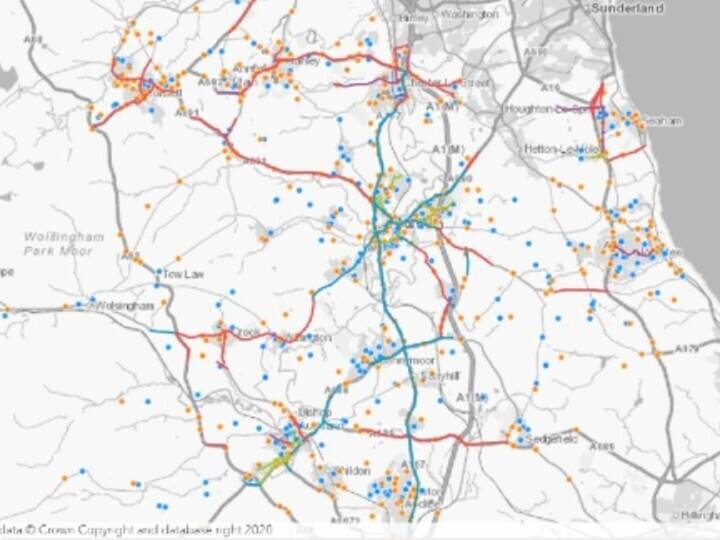Exemplar Award Winner- Best Practice Award Winner 2013: Nottingham City Council
Commercial property address information is notoriously difficult to maintain due to the turnover in names, details and locations. Nevertheless, it is very important that councils maintain accurate records of this information for various reasons, including business rate collection and other responsibilities. This case study explores how Nottingham City Council followed best practice to improve their commercial address records.
The issue
Nottingham City Council’s commercial property information did not always meet with address best practice guidelines as published in the National Land and Property Gazetteer (NLPG) Data Entry Conventions. The best practice guidelines assert that commercial addresses should not include the occupier name. This is because, if the occupier moves at some point, the address then becomes no longer relevant. In addition, it makes subdivision of the property more challenging in terms of addressing.
Nottingham City Council is an urban authority with large numbers of commercial properties, and its street naming and numbering (SNN) process covered only residential properties until some 10 years ago. This resulted in several hundred commercial properties where a company name formed part of the address, or imprecise addresses existed (for example “Workshop rear of…”). Resources did not exist to allow for dealing with address improvement on an individual property basis, nor for multiple detailed site visits.
Solution
The solution was to initiate a project to significantly improve the commercial address records held by Nottingham City Council. The project looked to standardise the records according to best practice, to adopt a desktop approach to maximise available resources and to automate the process.
The approach involved
• isolating records which were not in best practice format
• spatially examining them to enable improvements to be carried out in batches
• engaging with the occupying organisation to explain address changes
• using specific letter templates for each type of address change scenario e.g. company name, imprecise address
• building an application that allows for maximum efficiency and future processing • using cross-team resources and experience with LLPG, SNN, GIS and database knowledge and software.
Outcomes
Now that commercial records are addressed using numbers as per best practice guidelines, there are several positive outcomes:
• reduced address problems for existing and new occupiers
• on-going benefits for LLPG users throughout the council, particularly for Business Rates, in that the property address no longer depends on the past or present occupier
• in conjunction with the use of the UPRN in council address databases, an improved collection of revenue is achieved, where new commercial properties can be identified promptly and accurately by Business Rates and the Valuation Office
• reduced time is spent by the Address Management Team editing property addresses each time an occupier changes; the need for site visits is reduced, especially in the case of splits or mergers; the Valuation Office and Business Rates will have been notified of the number for the property, so all parties are confident that they are referring to the same site.
A positive response from Nottinghamshire Police states: ‘Nottinghamshire Police welcomes anything like this which enables us to tidy up our records for industrial estates which are notoriously difficult to maintain accurate records for.’
The local Valuation Office Agency have also commented that they are ‘….glad to see you and your team are still looking at protocols to improve records and computer systems.’
Riley Marsden, LLPG Custodian for Barnsley Council, commented, ‘…one of the really good things about your project is that it is easily replicated by other Authorities across the country and that could potentially help to improve the addressing of commercial premises nationally.’
Authority view
“The successful project, which assigns a consistent property identifier to commercial units, has been undertaken through effective engagement with Nottingham’s business community, and is to the benefit of the Council’s internal business processes, both within the GIS team and numerous other services, such as Licensing and Business Rates. The targeted and systemised approach has greatly increased the efficiency of the Address Management section in solving this historic problem and responding to current commercial address queries. The project therefore makes extremely effective use of team resources, whilst serving both local businesses and any organisation that uses local authority addresses.”
—Mick Dunn, GIS, Data & Information Teawer



